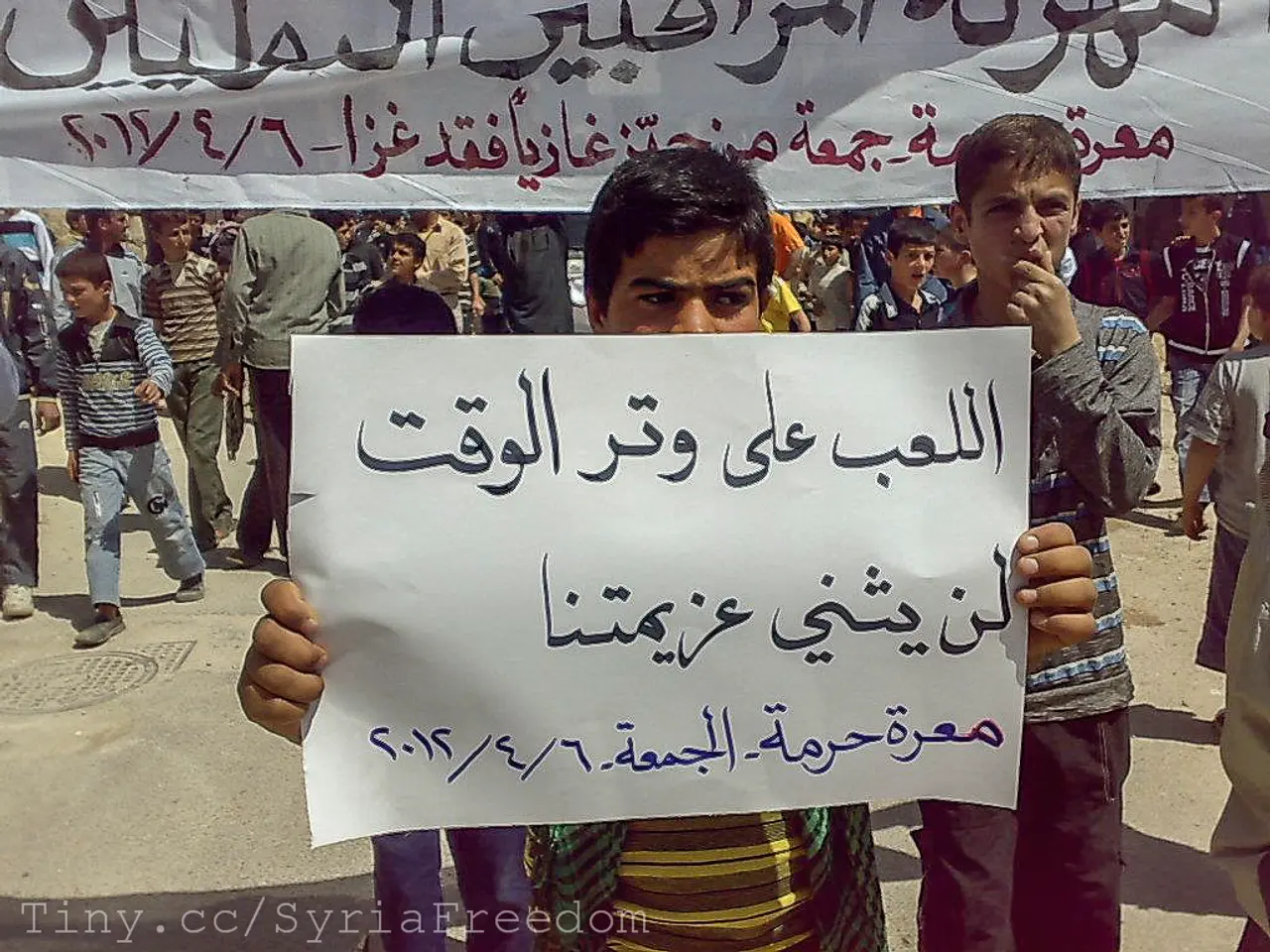Criticism by Jewish Community Over Prohibition of Arms Sales to Israel - Israel's Jewish community voices disapproval towards recent ceasefire agreement
In a recent development, arms deliveries from Thuringia, Germany to Israel have been halted, leading to a wave of criticism and political controversy. The decision, made by Chancellor Merz, is a response to Israel's desire to expand its military operations in the Gaza Strip, but it has sparked debates within Germany, particularly in Thuringia.
Reinhard Schramm, chairman of the Jewish community in Thuringia, has been vocal in his criticism of this move. He expresses his disapproval of Chancellor Merz's decision, stating that the de facto cancellation of the German state's raison d'état is concerning. Schramm believes that the deadly threat to Israel in a multi-front war is the result of democratic countries, including Germany, largely leaving the fight against terrorism to Israel.
Schramm's criticism is based on the belief that Germany should continue supporting Israel militarily due to its security needs, especially amid ongoing conflict in the region. He condemns anti-Israel violence, such as Hamas attacks, and emphasizes Israel's right to self-defense.
The Left party, which has influence in Thuringia, has also expressed opposition to German arms supplies to Israel. They call for a ceasefire and humanitarian aid, and criticize what they see as violations of international law by Israeli military actions. This internal political friction has led to demands from coalition partners in Thuringia and federal-level debates on Germany’s arms export policies and foreign policy toward Israel.
The halt to arms deliveries can also be seen in the broader context of Germany balancing its policy toward Ukraine, Israel, and the Middle East amid shifting geopolitical pressures. Despite this, Germany remains engaged in significant military assistance to Ukraine and has pledged extensive support through NATO.
In summary, the halt in arms deliveries from Thuringia to Israel reflects internal German political disagreements and criticism about Germany’s role in military support. These concerns revolve around humanitarian issues and legal considerations related to the Israel conflict. As the situation continues to evolve, it remains to be seen how Germany will navigate these complex issues in the future.
- Reinhard Schramm, armed with his criticism of Chancellor Merz's decision to halt arms deliveries to Israel, advocates for continued military support, emphasizing Germany's role in addressing Israel's security needs and the democratic countries' responsibility in the fight against terrorism, positioning this issue within the broader context of politics, general news, and war-and-conflicts.
- The internal political friction in Thuringia, fueled by debates over Germany's employment policy in relation to arms exports to Israel, has escalated, with the Left party advocating for a ceasefire and humanitarian aid, thereby shedding light on the sensitive and polarizing nature of these issues in the realm of community policy and foreign relations.








